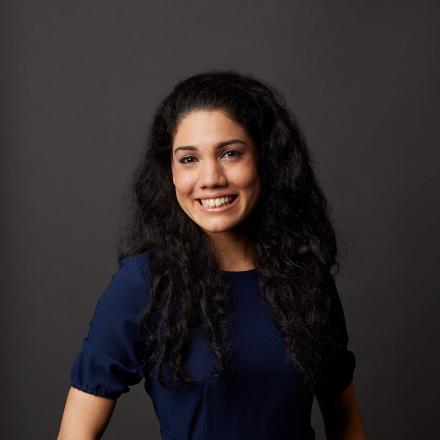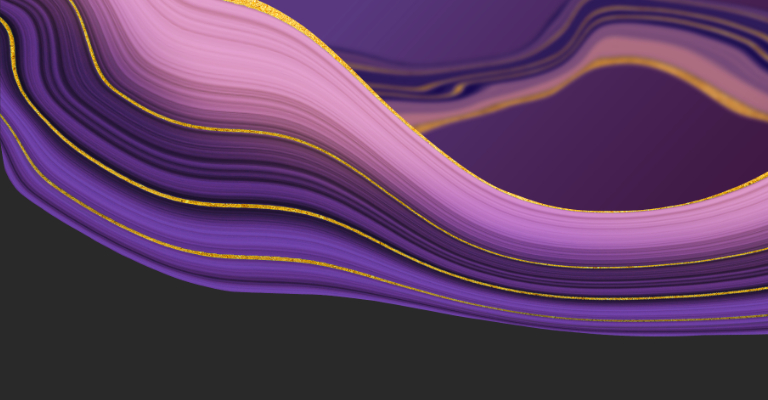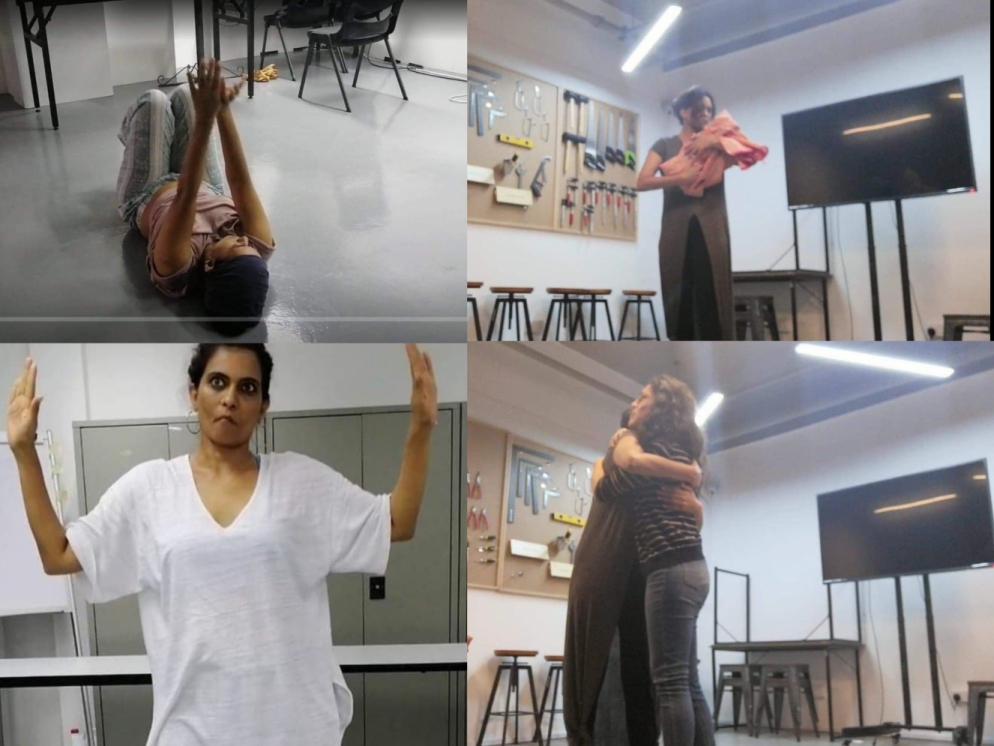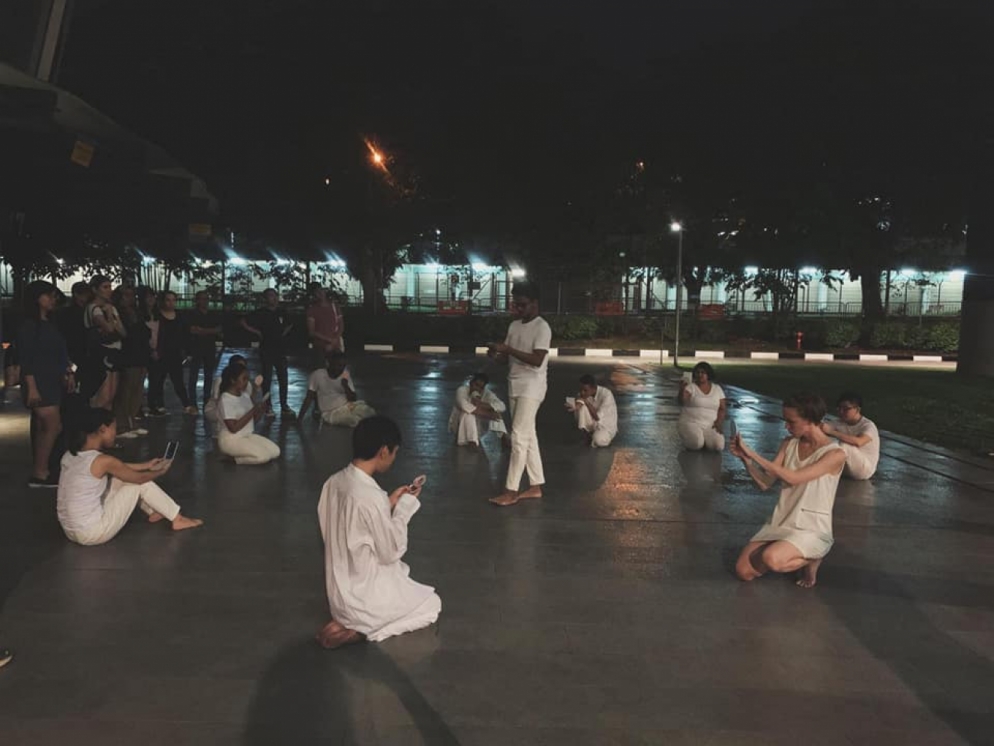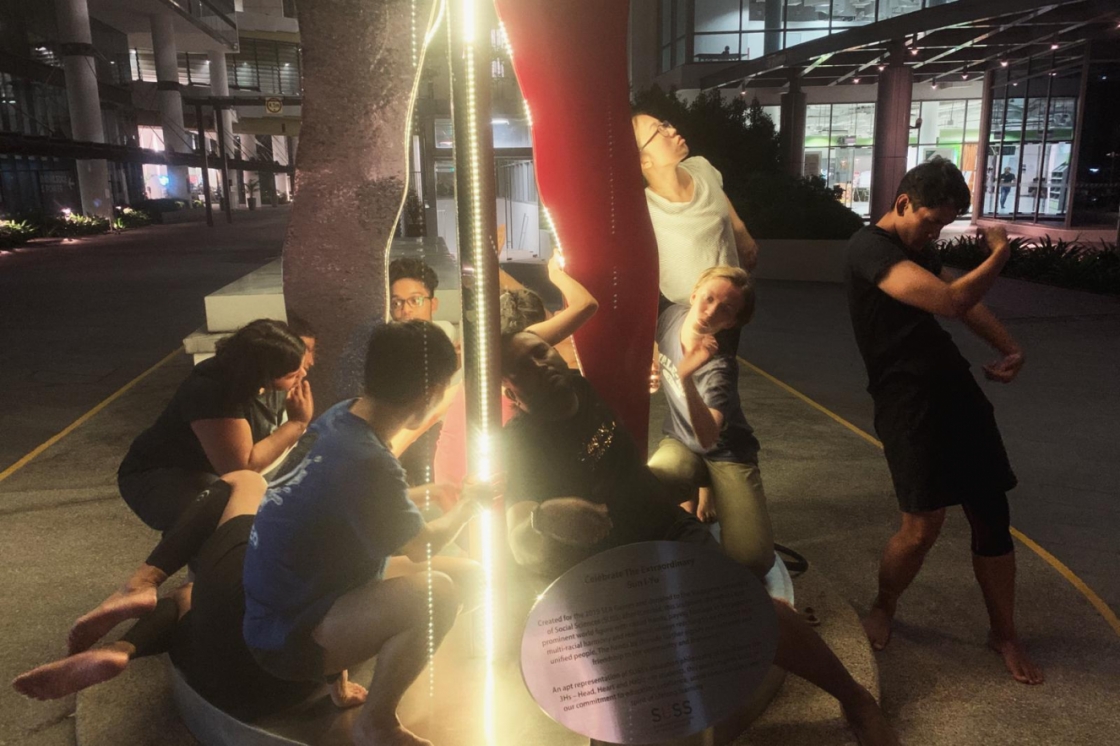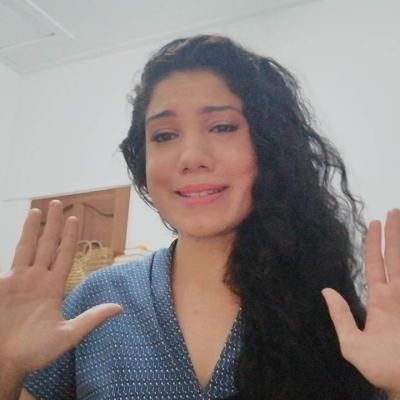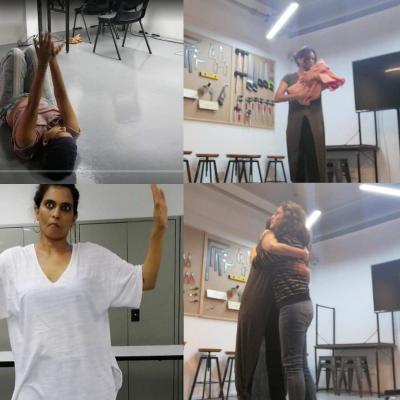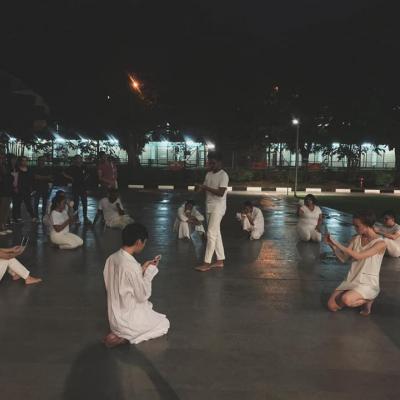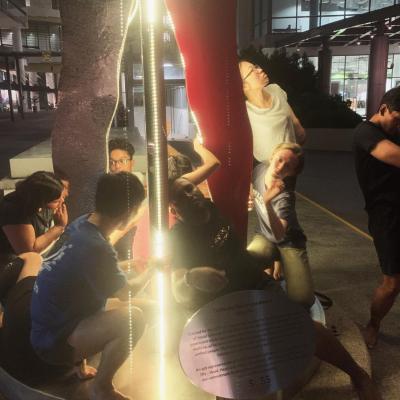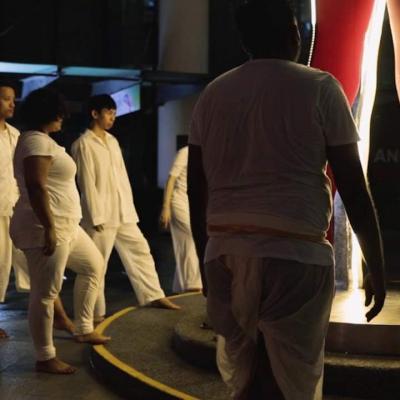The breath we hold back
In Singapore there is a rising number of cases of suicide, depression and anxiety. I questioned why these levels were so high, and more importantly, I wondered what I could do about them. I had, over the years, been developing a methodology called ‘Primal’ which combines psychophysical acting techniques, breath practices and the devising and performing of a personal narrative. I knew that ‘Primal’ had benefited my own personal overall wellbeing, but could this methodology be used as a new pedagogical framework to facilitate the development of someone else’s overall wellbeing? I invited participants to two different projects to experience my ‘Primal’ training. The majority of these participants have had a history of suffering from depression and anxiety, or a family member coping with these issues. The aim of this investigation was to facilitate a structure where participants were able to address these issues through an awareness of their mind-body relationship through a deepened breathing practice. Secondly, I used adapted drama therapy exercises and combined them with personal narratives. I worked with participants and their stories by placing them in a process of devising and embodied theatre practices. The results of this process gave participants a release of supressed emotions, which were linked to their subconscious and manifested in the body. I discovered that many participants have unspoken truths that sought to be expressed in a non-verbal language of the body, emotions and breath.
